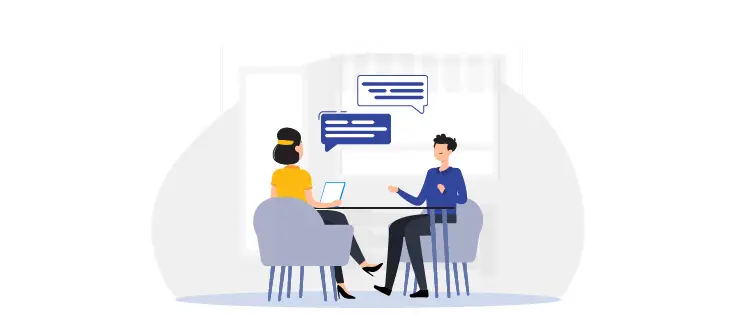 Neena Raj
Jul 24, 2025
Neena Raj
Jul 24, 2025

Interviews can get intimidating when the interviewer asks you about the challenges you faced at work. The interviewer asks this question to assess your problem-solving skills, resilience, and how you work under pressure. The effective way to confront this question is to use the STAR method. The STAR Method can help you structure your response and stand out from other candidates. It stands for
A well-crafted answer demonstrates not just your experience but also your growth mindset.
An employer asks, “Tell me about a time you faced a challenge at work,” to evaluate the following aspects
Follow these steps to build a strong response:
Pick a real situation from your work experience that shows you solving a problem or overcoming an obstacle. Ensure it is relevant to the role you are applying for. Follow these tips while choosing the relevant example to answer the question.
Having effective communication skills will give you the confidence to face behavioural interview questions. To enhance your communication skills in the interview, you can join the Business English Course.
Stick to the STAR format to make your response authentic. Given below are some of the examples that will help you get clarity about the application of the STAR format.
Example 1: Handling a Tight Deadline
Example 2: Resolving a Team Conflict
Example 3: Adapting to Sudden Change
It is essential to have a strong Emotional Quotient to crack tough interviews. Having strong EQ will increase your chances of getting into the job. It will be easy to apply the STAR method if your emotional intelligence is high.
Start by enrolling in the Emotional Intelligence Course to strengthen your EQ
Highlight what you learned or how you improved processes, relationships, or performance in your workplace. It is important to showcase your strengths in the interview and make the right impression on the interviewer. The way you present yourself in the interview will determine the chances of getting the job.
The employer always chooses candidates with a positive personality. To improve your personality, you can join a personality development training program. Join the personality training will transform your body language and enable you to make a lasting impact.
Answering “Tell me about a time you faced a challenge at work” doesn’t have to be stressful. With the STAR Method, you can present your experience in a structured, impactful way. By focusing on the situation, your role, your actions, and the result, you’ll show employers that you’re a problem-solver they can rely on.
If you are looking to improve your interview skills and land your dream job, approach the right trainer for your career readiness. Good luck!
If you need more tips on facing an interview, check out the tips on how to answer 'What does failure mean to you?''.

Neena Raj is an expert trainer with 24 years of experience in enhancing organizational performance through HR, soft skills, and productivity training. Her areas of expertise include organizational behavior and team dynamics, cross-cultural communication, performance management systems, and life coaching and development.
Neena has an MBA in Sales and Marketing from Loyola College, a Diploma in Psychological Counselling, and is currently pursuing a PhD in Psychology. She is also a Certified NLP Trainer and holds several other certifications, including Certified Human Resource Professional (CHRP), Certified Human Resource Manager (CHRM) and Total Quality Management Certification.
Her specialisations include public speaking, emotional intelligence training, Time Management, Leadership Skills and UAE labour law. Neena has delivered public speaking training for many of Dubai’s leading companies and government entities, including the Dubai Health Authority (DHA), Emirates Airlines, DP World and Dubai International Hotel.